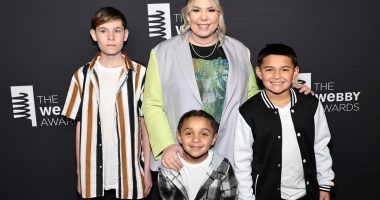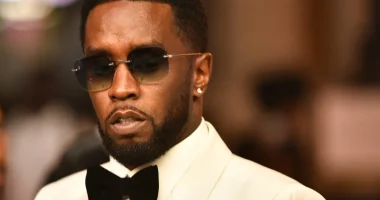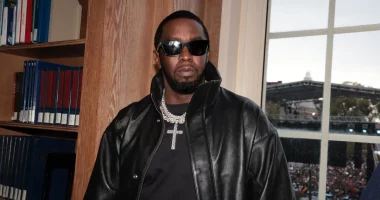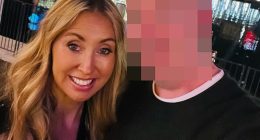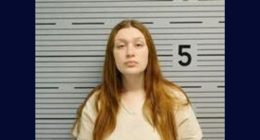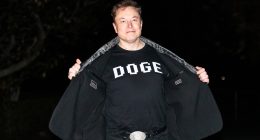ELLE Macpherson has revealed her secret cancer battle for the first time, saying she refused chemotherapy.
Supermodel Elle, 60, disclosed that she fought breast cancer seven years ago, but now claims to be in remission after controversially choosing not to undergo traditional medical treatment.

4
The Aussie star shares in her upcoming memoir, Life, Lessons, and Learning to Trust Yourself, that the detection came as a “shock” and left her “confused”.
After undergoing a lumpectomy, the WelleCo founder was diagnosed with HER2 positive estrogen receptive intraductal carcinoma.
Her doctors recommended a treatment plan that included a mastectomy, radiation, chemotherapy, hormone therapy, and breast reconstruction.
However, Elle chose to forgo conventional medical treatments.
read more on Elle MacPherson
Though alternative treatments can help with symptoms of cancer, such as nausea and fatigue, there is no evidence to say they can cure the disease.
Alternative therapies can include acupuncture, aromatherapy, cognitive behavioural therapy, hypnosis, massage and more – practises the NHS does not offer and are therefore not available to the average person without paying privately.
In an interview to promote the book, Elle told Women’s Weekly that she spent time praying and meditating on a Miami beach, ultimately deciding against pharmaceutical treatments and instead choosing “an intuitive, heart-led, holistic approach” to healing.
She admitted that rejecting standard medical advice was “the hardest thing” she’s ever done, but that ignoring her own instincts would have been even more difficult.
The runway veteran also expressed her belief that chemotherapy and surgery were too “extreme” for her situation.
Elle is now in what she calls “clinical remission”, though she prefers to refer to it as “complete wellness”.
She explained that some her loved ones had mixed feelings about her denying chemotherapy.
Her youngest son, Cy, 21, supported her fully, while her older son, Flynn, 26, had reservations about her decision.
Elle said, “Flynn, being more traditional, was uncomfortable with my choice. But as my son, he stood by me and supported me, even if he didn’t agree with my approach.”
Her former partner Arpad Busson, who separated from Elle in 2005 after nearly a decade together, didn’t agree with her methods either but wrote her a letter expressing pride in her courage.
The NHS advises that breast cancer treatment is personalised based on the type and stage of cancer and the patient’s health.
Main treatments include surgery to remove the cancer, radiotherapy to destroy remaining cells, and chemotherapy to shrink the tumor or prevent its return.
Hormone therapy may be used for hormone-sensitive cancers, and targeted therapies like trastuzumab are available for specific cases.
It highlights that combining these treatments often leads to better outcomes.
Elle previously experienced a cancer scare in 2013 when she found a lump in her breast on her 49th birthday.
Although it was benign, the experience prompted her to rethink her approach to health and wellness.
Reflecting on that time, Elle told the Mail on Sunday, “I was away shooting Britain and Ireland’s Next Top Model, so I couldn’t see my doctor and I was really panicking.
“It was four weeks before I got the biopsy results, so it was a long-drawn-out and stressful period of not knowing.
“I was lucky – it was a fibroadenoma [a benign growth of fibrous tissue], but it was a really big warning. I did some soul searching and realised that maybe I was taking the wrong vitamins and minerals, not eating properly and was too stressed.”
The dangers of alternative therapies for cancer
Anyone can refuse cancer treatment, such as chemotherapy, if they wish to.
Complementary therapies may be used alongside conventional medical treatments to improve your quality of life and cope with cancer symptoms of treatment side effects.
Alternative therapies, on the other hand, are used instead of medical treatment.
There are various reasons why someone may choose to have alternative therapy.
Cancer Research UK says: “Using alternative therapy can become more important to people with advanced cancer if their conventional treatment is no longer helping to control it. It is understandable that they hope that alternative therapies might work.
“But, there is no scientific evidence to prove that any type of alternative therapy can help to control or cure cancer. Some alternative therapies might be unsafe and can cause harmful side effects.”
Cancer experts fear that those who promote alternative treatments give hope to people that they can be cured.
They typically rely on individual experiences from people who claim the therapy has helped them – but this is not enough evidence for it to be supported scientifically.
Cancer Research UK says: “Unfortunately, some alternative therapies are just money making schemes. People can end up paying a great deal of money for something that has not been properly tested. Or has not proven to work in scientific studies or clinical trials.
“This is very unfair on people with cancer. They might be vulnerable and willing to try anything they think has a chance of curing the cancer. This is one of our main concerns.”

4

4

4


